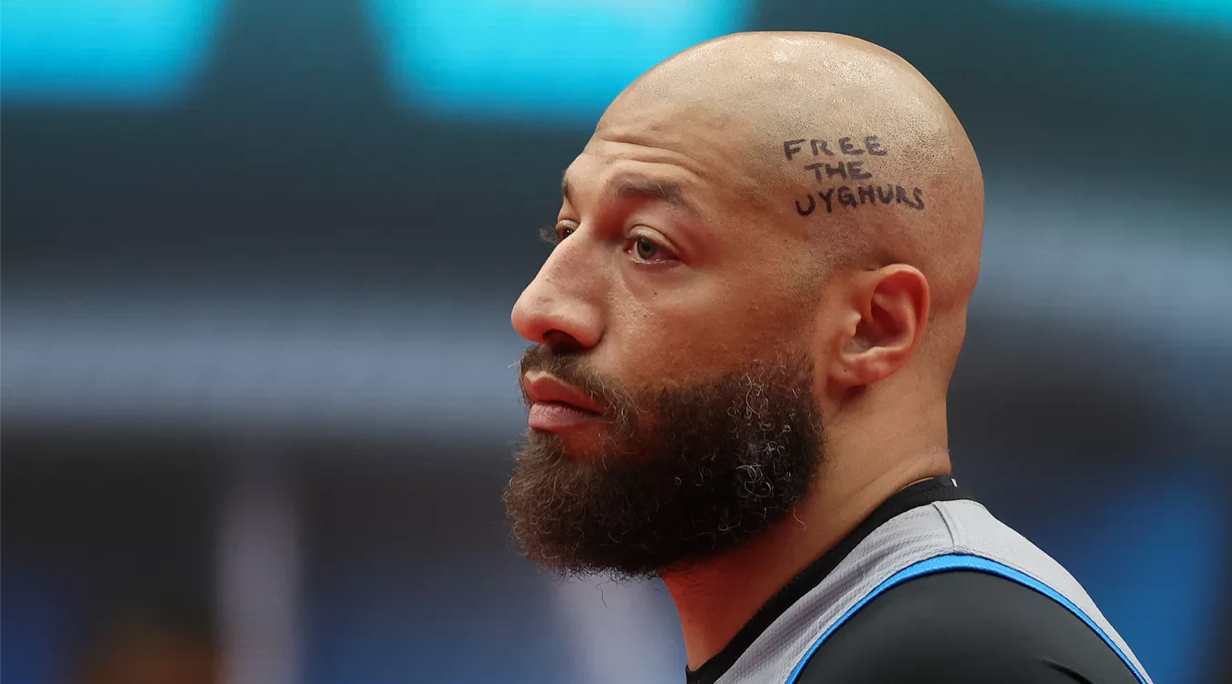
A Minnesota congressional candidate spent thousands of dollars in campaign funds at popular retailers in recent months without explaining in his fundraising report how many of the purchases were used for his campaign, an Axios review of Federal Election Commission records found.
Why it matters: Some of the expenditures reported in 5th Congressional District candidate Royce White's recent campaign finance filing could run afoul of FEC reporting requirements and rules prohibiting the use of political funds for personal use, two experts told Axios.
The big picture: The Royce White for Congress committee lists dozens of purchases totaling more than $10,000 at large retailers that included apparel, sporting goods and home goods stores without disclosing the purpose in his July 15 filing to the FEC.
The report also fails to specify the recipient or reason for more than $50,000 in checks and wire transfers paid out of the campaign account.
In response to an Axios query, White said the campaign is in the process of updating their filing and insisted that “all the funds were spent on campaign related activities.”
State of play: White, a former NBA player and advocate for mental health awareness, is one of three candidates running in the upcoming Republican primary to challenge DFL U.S. Rep. Ilhan Omar for a Minneapolis-based seat this November.
The race has attracted significant campaign cash: White and his main primary rival, GOP-endorsed candidate Cicely Davis, have each raised and spent hundreds of thousands of dollars for their respective bids in the primarily Democratic district.
Zoom in: White’s second quarter report showed that he raised more than $137,000 and spent $178,000 between April and June. According to the report, his campaign’s expenditures included purchases at Bed Bath & Beyond ($442.95), Nike ($372.69) Lululemon ($216) and Nordstrom ($407.52). The campaign spent hundreds more at Dick's Sporting Goods and more than $3,200 at Guitar Center.
The campaign also spent $365.91 on a New Balance "shoe purchase for door knocking," $409.10 for "clothes for campaign videos and commercials" from K&G Fashion Superstore, according to the report.
What he’s saying: White defended the purchases in a late July Twitter message to Axios, saying "everything has been used in our campaign ... Which now has an expansive vault of content to use at a moment’s notice.”
When asked about the purchases at clothing and department stores, White told Axios that he can buy apparel to print campaign slogans on as well as items to use as “props and materials for campaign ads or commercials.”
He also told Axios that the Guitar Center purchases were for "audio equipment used for political functions” and that the check and wire transfer payments "went to people who rendered services."
Context: While federal campaign finance laws do not restrict spending at specific stores, they do require that committees provide a brief description of the purpose of disbursements as part of their report.
Without that information, it’s difficult to determine from the outside whether the purchases and payments were truly for political or personal use, David Schultz, an election law expert and professor at Hamline University, told Axios.
He said that campaign filing or disclosure issues are not uncommon, but the volume and nature of undocumented expenses in White’s report was unusual.
Saurav Ghosh, director of federal campaign finance reform at the nonprofit watchdog group Campaign Legal Center, told Axios the omissions “deprived the public of important disclosure information.”
Ghosh, a former FEC enforcement attorney, said the lack of transparency surrounding the recipients of wire transfers and checks is “especially troubling” since the public can’t see where that money went or what it was used for.
Between the lines: The descriptions for the purchases at New Balance and K&G Fashion Superstore suggest those expenditures may have been for items White or others wore as part of the campaign.
But, experts at the Campaign Legal Center told Axios FEC rules also generally don't allow candidates to spend campaign funds on their wardrobe, even if the items are worn in campaign videos or while knocking on doors.
Under the agency's "irrespective test," buying shirts from Nordstrom to customize with a campaign logo for supporters is probably OK, but buying a shirt — or even a suit — for a candidate to wear at a campaign event probably is not, Schultz adds.
What to watch: The FEC could ask White to provide more information about the disbursements and possibly issue a fine, Schultz said.
If some purchases were deemed to be for personal use, White could be asked to reimburse his campaign and pay a fine.
A FEC spokesperson declined to comment to Axios about an individual campaign or committee.











